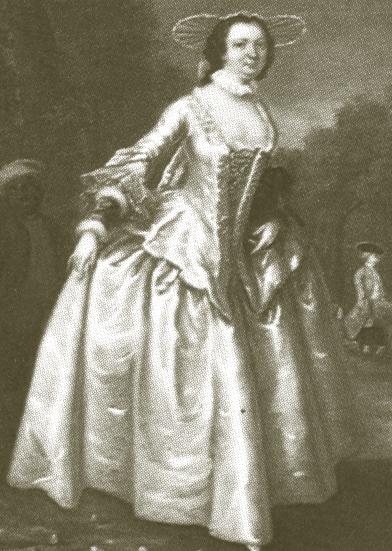Kitty Clive (Kitty Clive)

Singer and Actress. Catherine Raftor was born in London, the daughter of an Irish lawyer from Kilkenny who had fought for King James II at the Battle of the Boyne and spent years of exile in France before being pardoned by Queen Anne. The Dictionary of National Biography says of Kitty; “Her education was of the scantiest, her spelling to the last was bad even for the eighteenth century.” At the age of seventeen, she came to the attention of Colley Cibber, the manager of the Drury Lane Theatre, who cast her as Ismenes in Nat Lee’s tragedy, “Mithrades, King of Pontus.” With the exception of a short visit to Dublin in 1741, she remained at Drury Lane for the rest of her career, concentrating almost exclusively on comic roles. One of the few exceptions was as Portia in “The Merchant of Venice”, opposite Charles Macklin as Shylock, but this was not considered a success. She was a friend of Handel, and sang the role of Delilah at the first performance of his oratorio “Samson” in 1742. Another friend was Dr. Johnson, who said to Boswell: “Clive, sir, is a good thing to sit by. She always understands what you say. In the sprightliness of humour, I have never seen her equalled.” Her last appearance was in April 1769 as Violante in “The Wonder”, opposite David Garrick. She spent her retirement at her villa in Strawberry Hill, West London, where she died. In her twenties, she had married a barrister, George Clive, but the pair soon separated through mutual consent. After her death, Horace Walpole put up an urn in the shrubbery of her cottage, with the inscription: “Ye smiles and jests, still hover round; This is mirth’s consecrated ground, Here lived the laughter-loving dame, A matchless actress, Clive her name; The comic muse with her retired, And shed a tear when she expired.” (bio by: Iain MacFarlaine)
Born
- November, 05, 1711
- England
Died
- December, 12, 1785
- England
Cemetery
- St Mary Churchyard
- England

